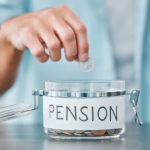Council tax is a key element of the UK’s local taxation system, affecting homeowners and tenants alike. Whether you’re a first-time homeowner or renting, you’re likely familiar with the term. But what exactly is council tax, and how does it impact your household budget? In this post, we’ll break down council tax rates, eligibility, possible reductions and exemptions, and the steps you can take to manage your payments.
What Is Council Tax?
Council tax is a local tax in the UK that applies to residential properties. It is collected by local authorities and helps fund essential services such as waste collection, public safety, fire services, and local infrastructure.
The liability for council tax generally falls on anyone over the age of 18 who resides in a property. If you own or rent a property, you are responsible for paying the tax, with payments made to your local billing authority. In some cases, if a property is unoccupied due to certain conditions (like probate or major renovations), it may qualify for exemptions or rebates.
Who Is Liable for Council Tax?
The person or entity liable for council tax is usually the homeowner or tenant. If multiple adults live in the same property, they share the responsibility. In rental properties, the tenant is generally responsible for paying council tax unless the tenancy agreement specifies otherwise.
If you’re moving to a new home, it’s important to inform both your old and new local councils to avoid outstanding charges. Similarly, if significant changes are made to your property (e.g., extensions or conversions), you need to notify the Valuation Office Agency (VOA), which may reassess your council tax band.
Council Tax Bands and Valuation
Every residential property in the UK is assigned a council tax band, which determines how much tax you pay. These bands range from A (the lowest) to H (the highest). The higher the band, the more you will pay in council tax.
Council tax bands are determined by the VOA based on your property’s market value as of 1 April 1991. Factors such as the size of the property, its location, and the value of similar properties back in 1991 are considered.
If you believe your property is in the wrong band, you can request a review. However, be cautious as your band might increase, leading to higher payments.
The 2024/25 Council Tax Rate Cap
In England, the council tax rate increase for the 2024/25 financial year is capped at 4.99%, including a 2% increase earmarked for adult social care. If a local council wants to raise the tax beyond this cap, they must hold a referendum. However, in exceptional cases, the government may approve a higher increase.
The amount of council tax you pay depends on your council tax band, your local council’s rates, and any applicable exemptions or reductions.
How Much Is Council Tax a Month?
Council tax is paid in monthly installments, with most councils offering a choice between 10 or 12 months for payment. The exact monthly amount varies based on your council tax band and local council rates. While the 4.99% cap on increases provides some predictability, it’s worth noting that financial pressures on local authorities could result in future rate hikes.
Council Tax Payment Methods
Council tax payments are typically made through the following methods:
- Direct Debit: The most common and easiest option, allowing automatic monthly payments from your bank account.
- Online Payments: Most councils offer secure online payment portals.
- Telephone Payments: You can make payments over the phone through your local council’s system.
- Bank Transfers and Standing Orders: Set up recurring payments through your bank.
- Post Office/PayPoint: Pay by cash or card at designated locations.
- Cheque or Postal Order: Some councils still accept cheque payments.
Council Tax Reductions and Exemptions
There are several ways to reduce your council tax liability through exemptions or discounts:
- Single-Person Discount: If you’re the only adult living in the property, you are eligible for a 25% discount on your council tax.
- Disabled Band Reduction: If a disabled person lives in the property and essential modifications have been made, you may qualify for a reduction by reclassifying the property to a lower band.
- Council Tax Reduction (CTR): Low-income households may qualify for CTR, which is a means-tested reduction based on income and household circumstances.
Exempt Properties
Certain properties are fully exempt from council tax:
- Unoccupied Properties: Properties that are unfit for habitation or legally repossessed.
- Student Properties: Properties occupied solely by full-time students are exempt from council tax.
- Holiday Caravans/Boats: These are exempt if the council tax for the main property has already been paid.
- Other Exemptions: Properties where all residents are under 18, or where all residents have severe mental impairments, may also be exempt.
Council Tax Support
Low-income households, pensioners, and vulnerable individuals may qualify for council tax support schemes. These schemes vary by local authority but generally provide financial relief based on your income and circumstances. In some cases, you could receive a full discount, meaning you pay no council tax at all.
To apply for a reduction, visit your local council’s website and provide necessary documents, such as proof of income or benefits.
Council Tax Appeals and Challenges
If you believe your council tax assessment is incorrect, you have the right to appeal. This could involve challenging your council tax band, disputing billing errors, or requesting exemptions you believe you qualify for.
- Appealing Your Council Tax Band: If you think your property is in the wrong band, you can request a reassessment by the VOA. If your appeal is unsuccessful, you can escalate the matter to an independent tribunal.
- Challenging Billing Errors: If you spot mistakes on your council tax bill, such as missing discounts, contact your council immediately to resolve the issue.
- Disputing Liability or Exemptions: If you think you shouldn’t be responsible for the council tax or should qualify for an exemption, you can challenge the decision with your local authority. If they reject your appeal, you may take it to the Valuation Tribunal.
Council Tax in Scotland
In Scotland, council tax is slightly different. Properties are assigned to one of eight bands (A to H), based on their value from 1991, but there has been no official revaluation since then. Additionally, Scotland has its own Council Tax Reduction scheme to assist low-income households.
Some councils in Scotland can apply a premium or discount on second homes or unoccupied properties. Council tax bills in Scotland also include water and sewerage charges, which are separate from the tax itself.
Conclusion
Council tax is an essential part of local government funding in the UK, but there are plenty of opportunities for reducing your tax liability through exemptions, reductions, and support schemes. Understanding the rules, staying informed, and knowing how to manage your payments effectively can help you make the most of the system.



